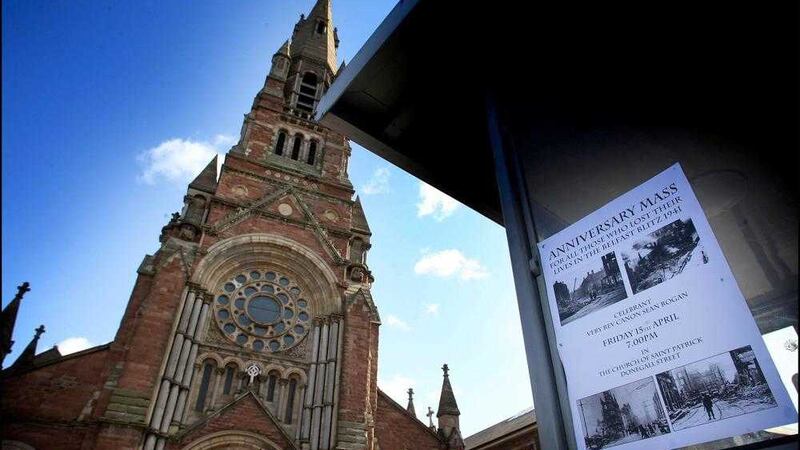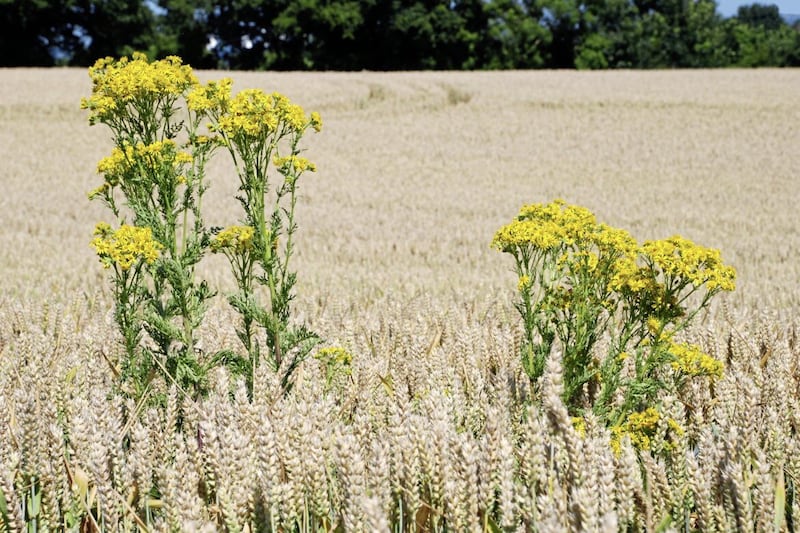AS we approach next April, which will mark the 75th anniversary of the Belfast Blitz, we are reminded of the dedicated service and sacrifice of so many brave and selfless servicemen and civilians who played their part in defending the freedoms which we can sometimes take for granted.
Whilst the price that would be paid was high, those unsung heroes and heroines preserved us from the dark tyranny of fascism and dictatorship so that we would continue to enjoy the freedoms of a democratic society.
Imperfect as it is, we would all agree that our world - at least the small part that we are fortunate to inhabit - is much better off than it might have been, had it not been for the sacrifice and bravery for which we will give thanks early next year.
Think too of those who campaigned for the right to vote or who stood up for the rights of workers; consider the aid workers who are at present braving hostilities in the Middle East to tend to the needs of the persecuted and those desperately seeking refuge; each day, in my role as hospital chaplain, I am reminded of those who dedicated their lives to ensuring that we would have access to a free health service.
I am reminded particularly of the Sisters of Mercy, one of whose number I am privileged to work alongside.
That brave and courageous band of women, some of whom followed Florence Nightingale into the Crimea to tend to wounded soldiers, founded the very hospital in which I serve.
Their successors continue that noble work of mercy, with quiet and unassuming diligence, right up to the present. They are sustained, no doubt, by the knowledge that they do God's work.
In chapter eight of Luke's gospel, we encounter another band of quiet and unassuming women who worked diligently for the building up of God's kingdom.
As well as Mary of Magdala, St Luke records the names of two of these otherwise anonymous women: Joanna, the wife of Chuza, and Susanna.
Whilst Luke tells us these women supported Jesus and his disciples out of their own means, he does not tell us how they did so.
Nevertheless, we owe them a great debt, for it is clear that their devoted love and service enabled the Lord and his disciples to dedicate their lives to proclaiming the Good News.
That same kind of love and service is the very life-blood of our parishes and dioceses.
Without the veritable army of unsung heroes who are prepared to do the unglamorous, behind-the-scenes tasks, our faith communities would be impoverished, our churches nothing more than museums.
Consider a memorable event which the church in which I serve, St Patrick's on Donegall Street, hosted earlier this year.
The Prince of Wales, on his historic tour of our island in May, paid us an unexpected but welcome visit to mark our church's 200th anniversary.
Whilst the Prince mingled with religious and civic dignitaries at the beginning of his visit, he quickly came upon the group of women who clean our church weekly.
Their appointed spokeswoman for the day, after the customary exchange of pleasantries, introduced herself as "the parish scrubber" - her honest-to-goodness humour was characteristic of the spirit which permeates this inner-city parish.
It was met, not surprisingly, with a roar of hearty laughter from the Prince and his entourage.
It is the good-humoured and dedicated service that this and other parish helpers exemplify, which is at the heart of what Luke records in his gospel.
That message, however, does not seem to have hit home with all Christians.
Reading a commentary on Luke chapter eight, I noted the anecdote of a brother priest. He recounts how a newly ordained priest - not this one, mind - once complained to his bishop: "I find myself having to count up the newspaper money and clean out the drains in the presbytery. I was not ordained to do such tasks."
The very wise bishop replied: "I am afraid that this is exactly what you were ordained to do - to serve God's people in its many and varied forms."
The bishop was indeed wise. The wisdom of experience had no doubt led him to the realisation that the simple goodness of ordinary folk rarely, if ever, captures newspaper headlines or even the imagination of a newly ordained priest.
And in a certain sense, thank God for that. It would be a sad day for all of us if goodness were so rare as to be considered newsworthy or remarkable.
Yet it remains that the rich legacy of love and service we encounter in the gospel, and which we see lived out in the daily realities of so many of our people's lives, bears witness to the truth that when we serve others we are truly serving God.
Saint Irenaeus put it thus: "A human being's true glory is to persevere in the service of God." Or as William Blake put it: "I sought my soul, but my soul I could not see. I sought my God but my God eluded me. I sought my brother and I found all three."
:: Fr Dominic McGrattan is curate in St Patrick's Church, Belfast and chaplain to the Mater Hospital








